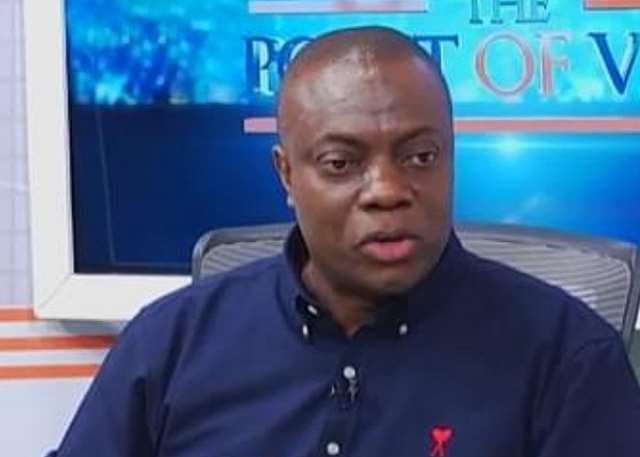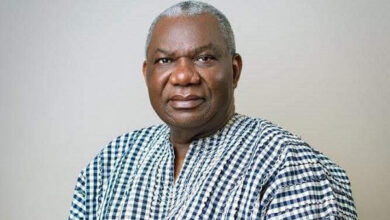Moomen challenges Mussah Dankwa over voting bloc analysis

Renowned journalist and broadcaster, Abdul Hayi Moomen, has publicly responded to a recent post by researcher Mussa Dankwah, in which Dankwah suggested that “it is more realistic to group the country into Akan, northern, Ga-Adangme and Volta blocs.”
Moomen, while acknowledging Dankwah’s reputation for insightful research, firmly questioned the logic behind this classification. In a letter addressed to him, Moomen began by clarifying his respect for Dankwah’s body of work:
“I have never, at any point, questioned your research prowess nor doubted your methodology since you came to the limelight through your insightful work. Your contributions have often shed light on aspects of our political and social realities in ways that many find thought-provoking.”
However, he explained that his concern lies with the inconsistency of the categories Dankwah proposed. According to Moomen, using “Akan” and “Ga-Adangme” as ethnic-linguistic groups, but then switching to geographical categories such as “Volta” and “Northern,” introduces confusion.
“In grouping Akan and Ga-Adangme, you clearly used an ethnic-linguistic basis. Yet for ‘Volta’ and ‘Northern,’ you shifted to purely geographical categorization. This inconsistency is problematic, as it unintentionally presents the impression that all people within the so-called ‘Volta’ or ‘Northern’ blocs share a common ethnicity, which is far from the truth.”
Moomen stressed that such blanket categorizations erase the deep diversity within regions. He pointed to the Volta Region, where Ewe, Guan, Adele, Akpafu, Logba, and other ethnic groups coexist, and to northern Ghana, which is home to Dagombas, Gonjas, Mamprusis, Frafras, Kusasis, and several others.
“These groups do not only speak languages that are unrelated, take Gonja, for example, but also have different cultural practices, religious leanings, and even contrasting political affiliations. To collapse all of them into a single ‘northern’ bloc, as though they constitute one cultural or political identity, is not only misleading but dangerous.”
He went further to warn about the dangers of reinforcing divisive rhetoric through such classifications:
“Such blanket categorizations feed into an unfortunate national narrative. They risk reinforcing the lazy rhetoric of ‘too many Northerners in government,’ which is often heard in political discourse. The reality, however, is that many ethnic groups in northern Ghana have never had a single representative appointed as a Minister of State or to any key national office since 1992.”
Moomen argued that combining diverse groups into simplistic blocs distorts representation and influences how resources are perceived to be shared. He therefore urged Dankwah to ensure consistency in his analysis.
“If ethnicity is the measure, then let us be consistent across all groups. If geography is the standard, then apply it equally. Mixing the two introduces distortions that can miseducate the very public your work seeks to inform.”
In conclusion, Moomen appealed to Dankwah to use his platform to push for a more progressive approach in analyzing voting patterns.
“Most importantly, I wish to appeal to you, with all sincerity, to resist promoting the culture of analyzing voting patterns through ethnic or geographical lenses. You have, in your new-found popularity and credibility, a rare opportunity to shift our discourse towards voting based on competence, integrity, and ability. That, I believe, would be a far greater contribution to building a united and progressive Ghana.”


